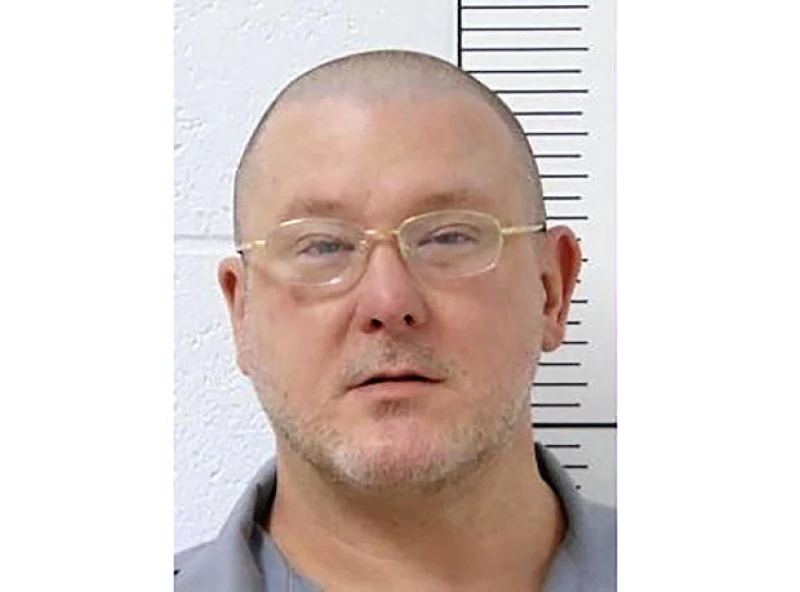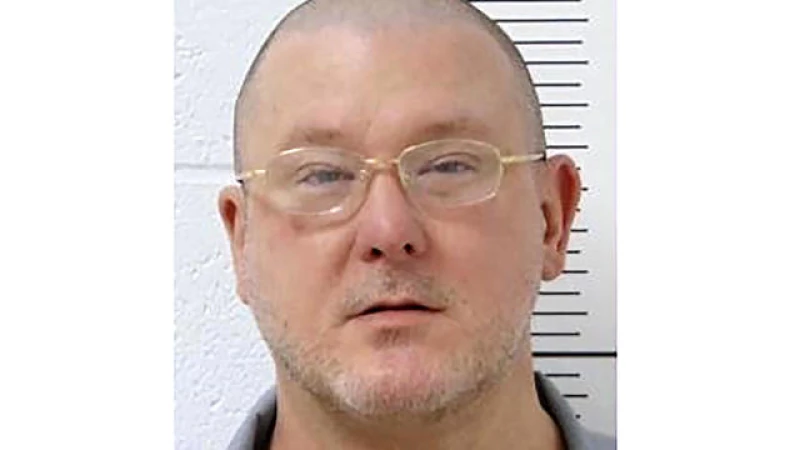St. Louis — The future of a Missouri man convicted of the murder of his cousin and her husband almost twenty years ago seems to be in the hands of the U.S. Supreme Court, as the scheduled execution looms just hours away.

Brian Dorsey, aged 52, is set to face lethal injection on Tuesday night at the state prison in Bonne Terre. Governor Mike Parson rejected a clemency plea on Monday. Two appeals are currently awaiting consideration by the U.S. Supreme Court. One appeal highlights Dorsey's exemplary behavior during his time in prison.
The other appeal argues that his life should be spared due to a conflict of interest involving his trial attorneys. The defense attorneys were paid a flat fee of $12,000, which did not incentivize them to dedicate sufficient time to his case, as per the appeal. Acting on their advice, Dorsey pleaded guilty without any assurance from prosecutors that he would avoid the death penalty.
If executed, Dorsey would be the first person in Missouri to be put to death this year following four executions in 2023. Another individual, David Hosier, is slated for execution on June 11 for the murder of a woman in Jefferson City in 2009. Nationally, four men have been executed in 2024 - one each in Alabama, Texas, Georgia, and Oklahoma.
Dorsey's tragic act
At the age of 52, Brian Dorsey, previously residing in Jefferson City, was found guilty of the brutal murder of Sarah and Ben Bonnie on December 23, 2006, at their residence close to New Bloomfield. It was revealed by prosecutors that on the same day, Dorsey had contacted Sarah Bonnie, requesting to borrow money in order to settle a debt with two drug dealers who were present at his apartment.
Later that evening, Dorsey visited the Bonnie household. Once the couple had retired to bed, Dorsey retrieved a shotgun from the garage and fatally shot them both. Subsequently, he committed a heinous act of sexual assault on Sarah Bonnie's lifeless body. Dorsey then proceeded to steal various items from the residence, attempting to settle his drug debt with some of the stolen possessions.
The following day, Sarah Bonnie's parents grew concerned when the couple failed to attend a family gathering. Upon visiting their home, they discovered their 4-year-old granddaughter sitting on the couch, watching TV. The child informed her grandparents that her mother was unresponsive.
Three days after the horrific incident, Dorsey turned himself in to the authorities.
Support for Dorsey
Legal representatives for Dorsey argued that he was in a state of drug-induced psychosis during the time of the offense. They highlighted his rehabilitation while in prison, emphasizing his newfound sobriety.
"Governor Parson has chosen to overlook the substantial evidence indicating that Brian Dorsey is exceptionally deserving of clemency," stated Megan Crane, one of Dorsey's attorneys. "Throughout his incarceration, Brian has dedicated each day to atoning for his actions, and numerous prison staff members have testified to his regret, personal growth, and dedication to serving others."
Dozens of corrections officers vouched for Dorsey's rehabilitation.
"The Brian I have known for years could not hurt anyone," one wrote in the clemency petition. "The Brian I know does not deserve to be executed."
In a letter to Parson as part of the clemency petition, former Missouri Supreme Court Justice Michael Wolff wrote that he was on the court when it turned aside an appeal of his death sentence in 2009. Now, he says, that decision was wrong.
"Missouri Public Defenders now do not use the flat fee for defense in recognition of the professional standard that such an arrangement gives the attorney an inherent financial conflict of interest," Wolff wrote.
Execution procedure questioned
Dorsey's execution raised new concerns about Missouri's protocol, which includes no provision for the use of anesthetics. Dorsey's attorneys describe him as obese, diabetic and a former intravenous drug user, all factors that could make it difficult to obtain a vein to inject the lethal drug. When that happens, a cutdown procedure is sometimes necessary.
Cutting Procedure Raises Concerns Over Lack of Anesthesia
A controversial cutting procedure, known as a cutdown, has sparked a federal lawsuit after it was performed without local anesthetic. The procedure involves making an incision and using forceps to pull tissue away from an interior vein.
The lawsuit, filed on behalf of a man named Dorsey, argued that the lack of anesthesia during the cutdown would cause him extreme pain and impede his right to religious freedom. This pain would prevent him from having meaningful interactions with his spiritual adviser, including the administration of last rites.
After negotiations, a settlement was reached on Saturday. The state agreed to take unspecified steps to limit the risk of extreme pain during such procedures. However, the settlement did not specify the exact changes that would be made, including whether anesthetics would be made available in the future.







